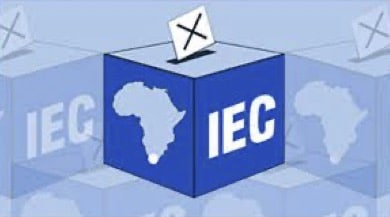Any attempt by the Electoral Commission to reopen candidate nominations for this year’s local government elections would be ‘contrary to the explicit direction of the Constitutional Court’, says the Institute of Race Relations (IRR).
‘This will grant the ANC its wish to place candidates on lists that it previously failed to complete before the deadline,’ the IRR says in a statement.
It argues that IEC chairperson Glen Mashinini’s statement that this was in line with ‘the scheme of the Municipal Electoral Act … that the voter registration deadline is intended to precede the candidate nomination deadline’ is ‘a legalistic interpretation of how the Municipal Electoral Act should be read in the context of this election cycle’.
‘But the matter of how to actually interpret the Act on this point has already been settled by the Constitutional Court. The ConCourt was asked by the EFF to lift the ban on political gatherings and to extend the deadline for candidate nominations. The court dismissed both appeals.’
In this, the IRR says, the court ‘ordered that voter registration be reopened while dismissing the appeal to reopen candidate nominations’.
‘Yet the IEC has overruled this as if the ConCourt had never read the relevant law, and the IEC knows better. The IEC is effectively asking the public to believe that the ConCourt gave its order without realising that this went against the usual order of things as envisaged by the Municipal Electoral Act and that the IEC has intervened to interpret the law where the court failed.’
The IRR argues that if the IEC ‘had said that some novel fact, which came to light only after the court heard the case, had caused the IEC to deem reopening candidate nominations “reasonably necessary”, then it would be another matter. But for the IEC to use abstract legal arguments to say there must be one order when the ConCourt has given the opposite order, is an affront to justice and hands a get-out-of-jail card to the ANC.
‘The IEC opposed the EFF’s request to delay candidate nominations, saying this would create a practical “impossibility” since the IEC would never be able use a later candidate nomination date and get the elections concluded by November 1. Glen Mashinini swore to this in an affidavit signed on August 18, but by September 6, when the ANC was in deep trouble, he went in the exact opposite direction.’
IRR head of campaigns, Gabriel Crouse, said: ‘This is not the first democratic travesty the IEC has pulled off in broad daylight. The original ‘proclamation’ on August 3 was an illegal act of voter suppression, disenfranchising thousands of South Africans, which was announced alongside another fake legal reason. Cogta Minister Nkosazana Dlamini-Zuma said that she had to disenfranchise people to allow the IEC to go to court, but court papers show the IEC had already told her on August 1 that this was not true and that she had agreed.
‘When Dlamini-Zuma lied to the public, did the IEC correct her? No. It does her, and her party’s bidding, rather than serve the people honestly. Now the IEC has used Dlamini-Zuma’s tactic of distracting people from a coup de main against democracy with legalistic nonsense.’

